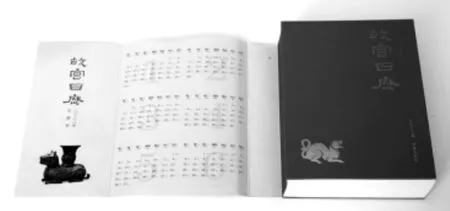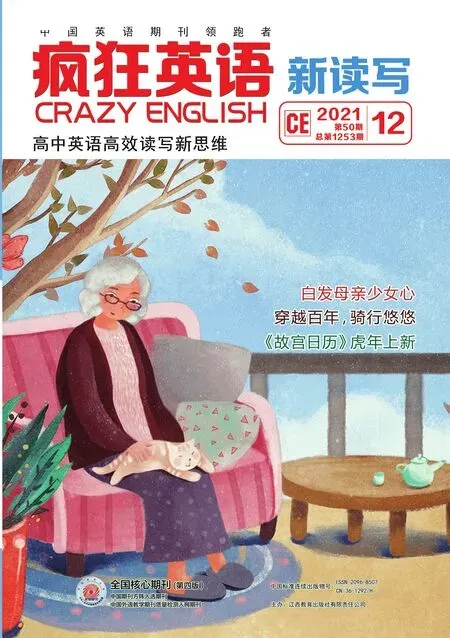Year of the Tiger calendar makes early impression
《故宫日历》虎年上新
Wang Kaihao
The Palace Museum in Beijing released its calendar for 2022 on September 6, although the Year of the Tiger is still more than four months away. Nevertheless, for fans of traditional Chinese culture,the long wait is over.
“The calendar has become a new way for many people to record their lives,” Chen Lihua, editorin-chief of the calendar, says. “It's also a way to give publicity to our recent academic achievements in simple words.”
Though printed calendars seem to have lost their functionality in the digital era, the museum's exquisite (精致的) calendar has become an item to collect. On each page of the new calendar,a tiger-themed cultural relic from the inventory of the Palace Museum is introduced, ranging from a jade ornament (装饰品) in the shape of a tiger dating back some 5,000 years to paintings created by modern Chinese masters such as Qi Baishi and Zhang Daqian.

“The tiger is an auspicious (吉利的) symbol in traditional Chinese culture, which stands for strength and energy. We want to reflect tiger-related culture from various facets,” Chen says. Many other cultural relics—weapons, props used in stage performances and costumes—unveil the symbol of power from different aspects in the new calendar. As the 2022 Winter Olympics will be held in China in February, a section of the calendar will introduce royal winter sports during the Qing Dynasty through art pieces.
The Palace Museum, also known as the Forbidden City, has been releasing annual calendars for Lunar New Year. More than 4,300 cultural relics from the museum have been shown through annual calendars so far. Nevertheless, the 1.86 million cultural relics housed at the Palace Museum keep offering inspiration to officials to continue the project.
“The calendars are not only books introducing history and cultural heritage of the Palace Museum. They are also key platforms to promote traditional Chinese culture and witness Palace Museum researchers' lasting spirit of exploration,” Wang Xudong, director of the museum, says.
In spite of the established reputation, creativity is still needed for new editions of the annual calendar. Other than the new design of pages, augmented reality is now being used, enabling readers to have a view of the moving pictures of cultural relics by scanning QR codes.

